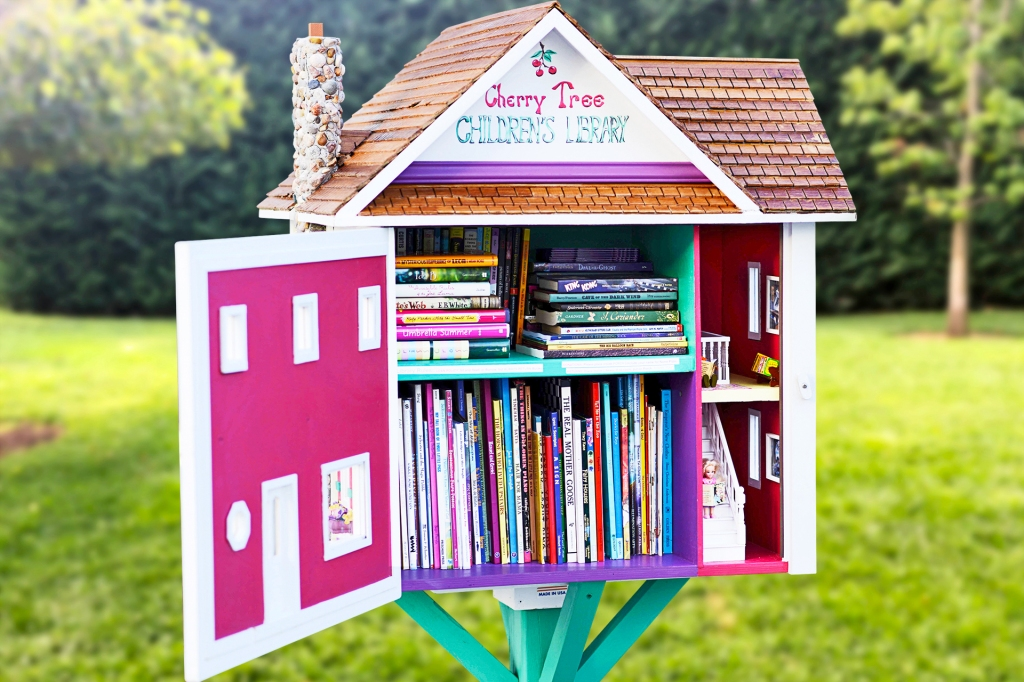
Libraries let you borrow(借) books. You can take books home. And then bring them back another day. Many libraries have more than books. You can also use the computers there. Some libraries have story time. Some have art classes.
Many neighborhoods have a library. Many schools have a library. But not every library is in a big building. Some libraries are very small. A Little Free Library can be the size of a birdhouse(小鸟舍)! Some little libraries are built in the old trees.
A Little Free Library lets people exchange books. You can take a book. Then you can leave one for someone else. Anyone can start. Most Little Free Libraries are wooden(木制的) boxes. There are many books in these boxes.
“It’s a great way to share a love of reading,” Margret Aldrich said. She wrote a book about Little Free Libraries.
本时文内容由奇速英语国际教育研究院原创编写,未经书面授权,禁止复制和任何商业用途,版权所有,侵权必究!(作者投稿及时文阅读定制请联系微信:18980471698)
1.What can we do in some libraries?
A Sell books.
B Listen to stories.
C Buy computers.
D Take English classes.
解析:选B。B 细节理解题。根据第一段“Some libraries have story time.”可知有的图书馆有故事时间,即我们可以听故事。故选B。
2._________ library are in big buildings; _________ libraries are very small.
A Each; some
B Some; some
C Every; no
D All; other
解析:选B。B 推理判断题。根据第二段“But not every library is in a big building. Some libraries are very small.”可知并不是每个图书馆都在很大的建筑里,有些图书馆非常小,即:有些图书馆在大建筑里,有些图书馆则很小。故选B。
3.What does the underlined word “exchange” mean in Chinese?
A 借入
B 借出
C 交换
D 归还
解析:选C。C 词义猜测题。根据第三段“You can take a book. Then you can leave one for someone else.”可知exchange books的意思是你可以拿走一本书,然后给其他人留下一本书,此过程即为“交换”。故选C。
4.What does Margret Aldrich think of these Little Free Libraries?
A It is a good idea.
B She doesn’t use it.
C It is not helpful.
D She doesn’t care.
解析:选A。A 推理判断题。根据最后一段“It’s a great way to share a love of reading”可知Margret Aldrich很认同迷你免费图书馆。故选A。
5.The passage is talking about _________.
A books
B libraries
C people
D buildings
解析:选B。B 主旨大意题。根据全文内容可知,文章围绕图书馆展开,故选B。